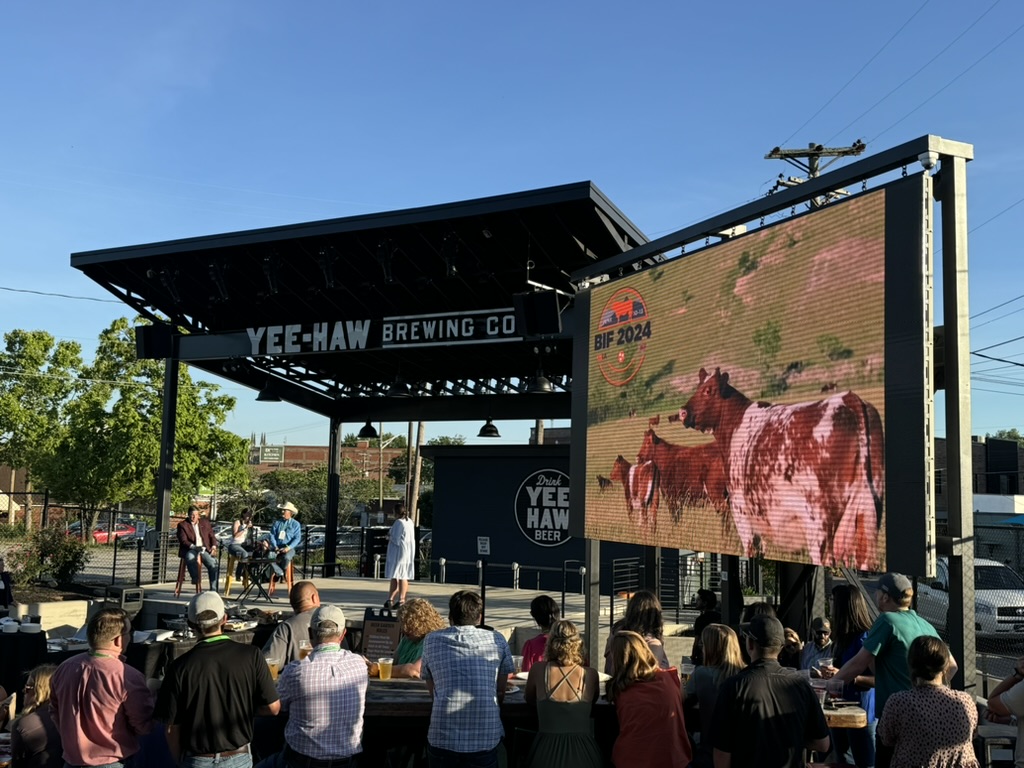
The University of Tennessee hosted the Beef Improvement Federation’s (BIF) Annual Symposium, held June 10-13. For more than fifty years, producers, breed associations, academics, extension personnel, and allied industry have gathered to discuss cutting-edge technologies in genetic selection in beef cattle. The meeting site rotates around North America, and we were lucky enough to get to host 500 people from all over the US and twelve different countries in Knoxville. This year’s symposium theme was “Breeding a More Efficient and Adapted Cow,” a nod to the importance of maternal genetics in cow-calf country. We packed the schedule full of high caliber talks from internationally renowned speakers, an exciting social program, and a tour of some progressive Tennessee cattle operations.
The meeting’s program was far-ranging but tied together around the overarching theme of cow efficiency and adaptability in the fescue belt. Our first day’s general session included talks on selection tools for breeding environmentally adapted cattle, the economic importance of cow longevity, and strategies for identifying cows that are able to efficiently convert forage into weaned calf pounds. Of particular interest to Tennessee and Kentucky breeders, Darrh Bullock, professor in the Department of Animal and Food Sciences at the University of Kentucky, presented on the long-term genetic impact of the CAIP and TAEP programs in our states’ cattle populations. The second day’s program included talks on long-term cow efficiency work from the US Meat Animal Research Center and perspectives on cow efficiency from the dairy industries in Canada and the United Kingdom on new and novel strategies for measuring and selecting for fertility, efficiency, and sustainability traits. On both days, the afternoon was filled with breakout sessions that ranged from largely applied and producer-friendly talks to some very technical presentations on innovations in the area of genetic evaluations.
This year’s symposium made a concerted effort to increase graduate student participation throughout the program. A USDA-NIFA conference grant covered travel costs for ten students and registration for another twenty-eight, resulting in the largest student participation in the meeting’s history. The meeting also hosted the first ever “Shark Tank” competition in which students presented their original ideas on genetic improvement programs during an evening social event at Yee-Haw Brewing.
Following the formal meeting, we hosted a tour of four innovative Tennessee beef operations. These included Burns Farms Herefords in Pikeville, the Plateau Research and Education Center in Crossville, Sweetwater Valley Farm in Philadelphia, and Sixteen Peaks Cattle in Louisville.
The symposium was a huge success and left a lasting impression on people from all over the country of UTIA’s commitment to supporting beef production at the local, state, and national levels.